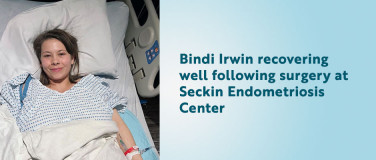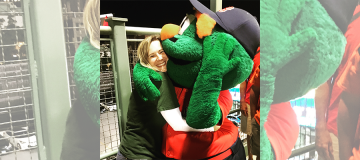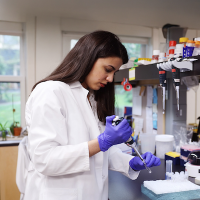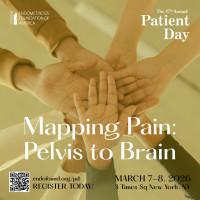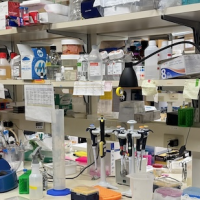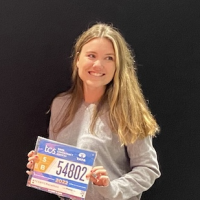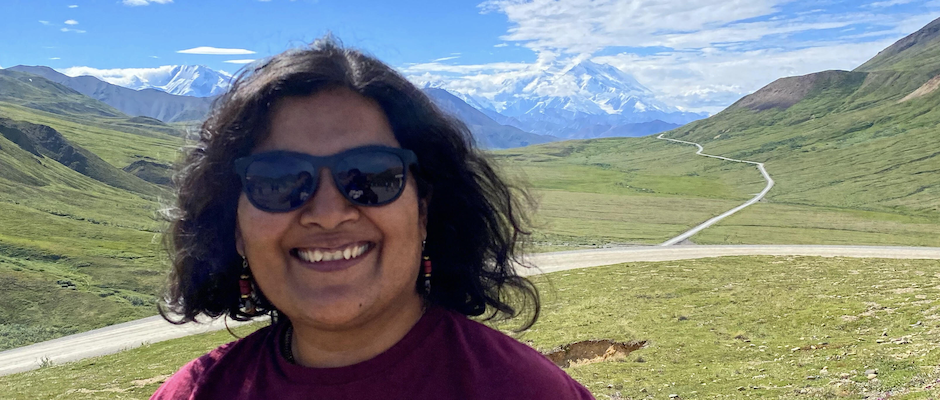
There is a storm brewing inside me (and outside, thank you climate change!). It’s been fed by approximately 900 days of debilitating endometriosis pain.
Roughly 22 years of periods x 12 months x 3 days + 3 recent months of daily pain. Pat comes the reply from my mom, ever the optimist that she is: “Think about how much you’ve accomplished in those 900 days despite your pain!”
But I’m mad. I’m mad that it took so long to get diagnosed. I’m ridiculously mad that despite the diagnosis, it took so long to get treated. I’m so mad that even after endometriosis excision surgery, my path to recovery is yet to be charted. I’m heartbroken for all the lost life opportunities and moments in between.
Ok, rant over.
I’m choosing to deal with my rage by educating myself and raising awareness for this difficult and complicated disease. And by forgiving myself for not being able to give 100% of myself to life, relationships, and my career for those 900 days.
Here are the four stages of my endometriosis journey:
Misdiagnosis & Self-doubt
From the time I was in college till my late thirties I would think I was going completely mad or was being weak for not being able to go about my regular day during my menstrual cycle. I would be shocked that my girl friends were still functioning humans during theirs—some even hiked, ran, and did other sports!! I was lucky, on the other hand, if I could make it to classes or later on in my life, the office. I remember hugging my bottle of Advil close every time my period started, dreading what fury it would bring, desperately hoping the agony would end.
This brought about frustration, helplessness, and was a massive hit to my confidence. Too many times, I’ve crumbled onto the floor in random public places (subways, train stations, parks) when things became unbearable to the point of fainting. The most heartbreaking was watching my parents watch my pain last year—they resorted to prayer to help me. The most humiliating was when I begged a nurse for morphine out of sheer deliriousness. Meanwhile the knife just kept twisting away.
Doctors all shrugged it away as simply period pain and I got all sorts of advice including trying heat pads, losing weight, changing my diet, doing yoga, etc. I would feel idiotic even bringing it up with doctors and I stopped trying to after a while. Family and friends tried to help me but this was a deeply personal fight I was fighting.
Underplaying the problem
I was diagnosed with potential endometriosis in 2018 when I insisted on an ultrasound during a health checkup. I was tired of no one taking me seriously. I had never even heard of endometriosis until then. One doctor said they’re “just cysts.”
Even after diagnosis, my OB-GYN did not explain the gravity of my condition to me or really talk seriously about next steps. Endometriosis has a long list of life altering effects including chronic pelvic pain, infertility, etc…
Lovely.
I was vaguely asked to get on hormone meds which have <20% success rate in limiting endometriosis growth but are the most widely recommended medical management option! The gold standard for treatment is excision surgery but it is not discussed till the disease becomes very serious!!!
I changed GYNs a few times and thought I had bad luck with doctors again and again — but the statistics on misdiagnosis or delayed treatment are staggering. On average people go 10 yrs without diagnosis!
For a disease that affects 1 in 10 women, there is remarkably little discovery on cause and cure. Myths around endometriosis management and treatment are all consuming and are pushed strongly by doctors, too. The one that pissed me off all the time was: ‘Get pregnant, it will cure your period pain!” Here’s a handy guide for more madness.
Acceptance & Treatment
When things took a turn for the worse this summer and my pain became daily and not just during my period, I met about 15 doctors/specialists/surgeons to find out why. Many tests later my OB-GYN broke it to me that my endometriosis was now Stage 4 and had grown to the point where it had pushed my organs into each other and anything I did would induce pain.
Great.
Those who’ve dealt with the American medical system and insurance know that only half the battle is to get a diagnosis and treatment plan. The other half is getting your appointments scheduled and getting insurance to pay. This is a topic for another day.
I got some good advice from a friend that I need to make myself sound really sick for a surgeon to take me seriously and schedule me asap. So I did.
And finally, 22 years later, I was looking at a possible treatment date. Endometriosis excision surgery. I was going to lose one or both fallopian tubes. Possibly my appendix. I didn’t care. I didn’t have an option to care. I was relieved for some progress and hopeful to be pain free.
My excision surgery has now been completed. And I’m staring at a long path towards recovery.
Lessons Learned
I’ve learnt a lot along the way and discovered a lot of focus groups and organizations that are leading the charge on awareness and advocacy (EndoWhat, CenterForEndo, EndoFound to name a few).
What am I going to do next?
-
I’m going to talk about endometriosis with everyone I know, regardless of how uncomfortable they are talking about menstrual cycles.
-
Fight like hell to insist on treatment for any future developments.
-
I’m going to talk about my story.
-
I’m going to forgive myself for not being fully present for those 900 days and any more that follow.
All my love,
Ammu
Editor's note: Would you like to contribute to EndoStories? Click here to learn how to submit your work.
*Patient stories submitted to EndoFound.org are the views of the patient and not necessarily those of the foundation. All testimonials are from real patients, and may not reflect the typical patient’s experience, and are not intended to represent or guarantee that anyone will achieve the same or similar results.



